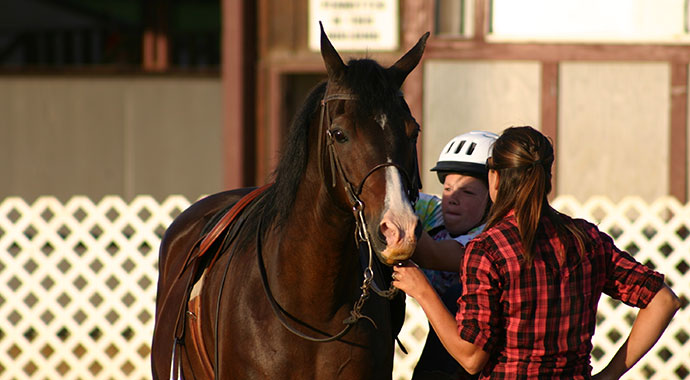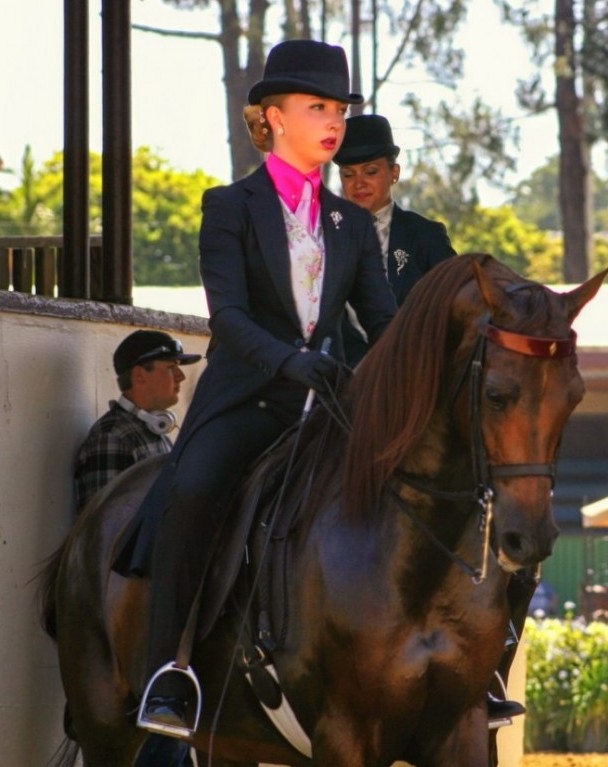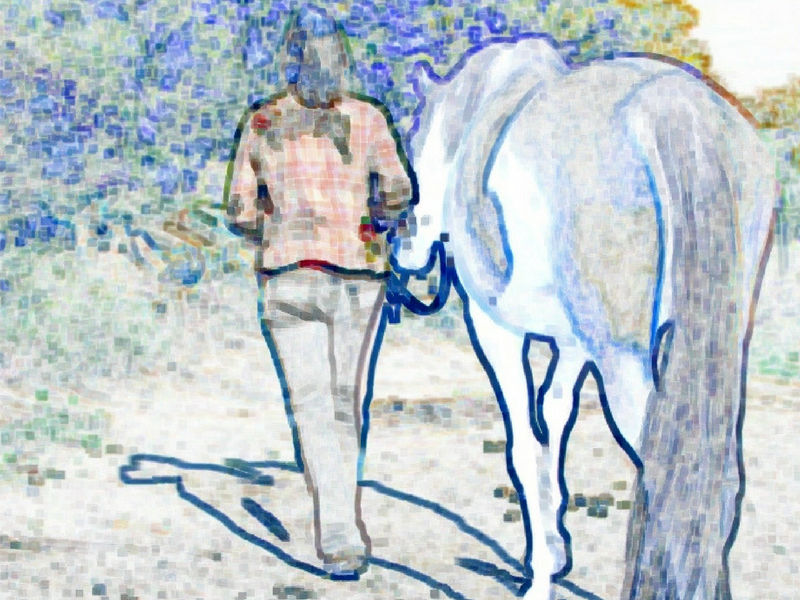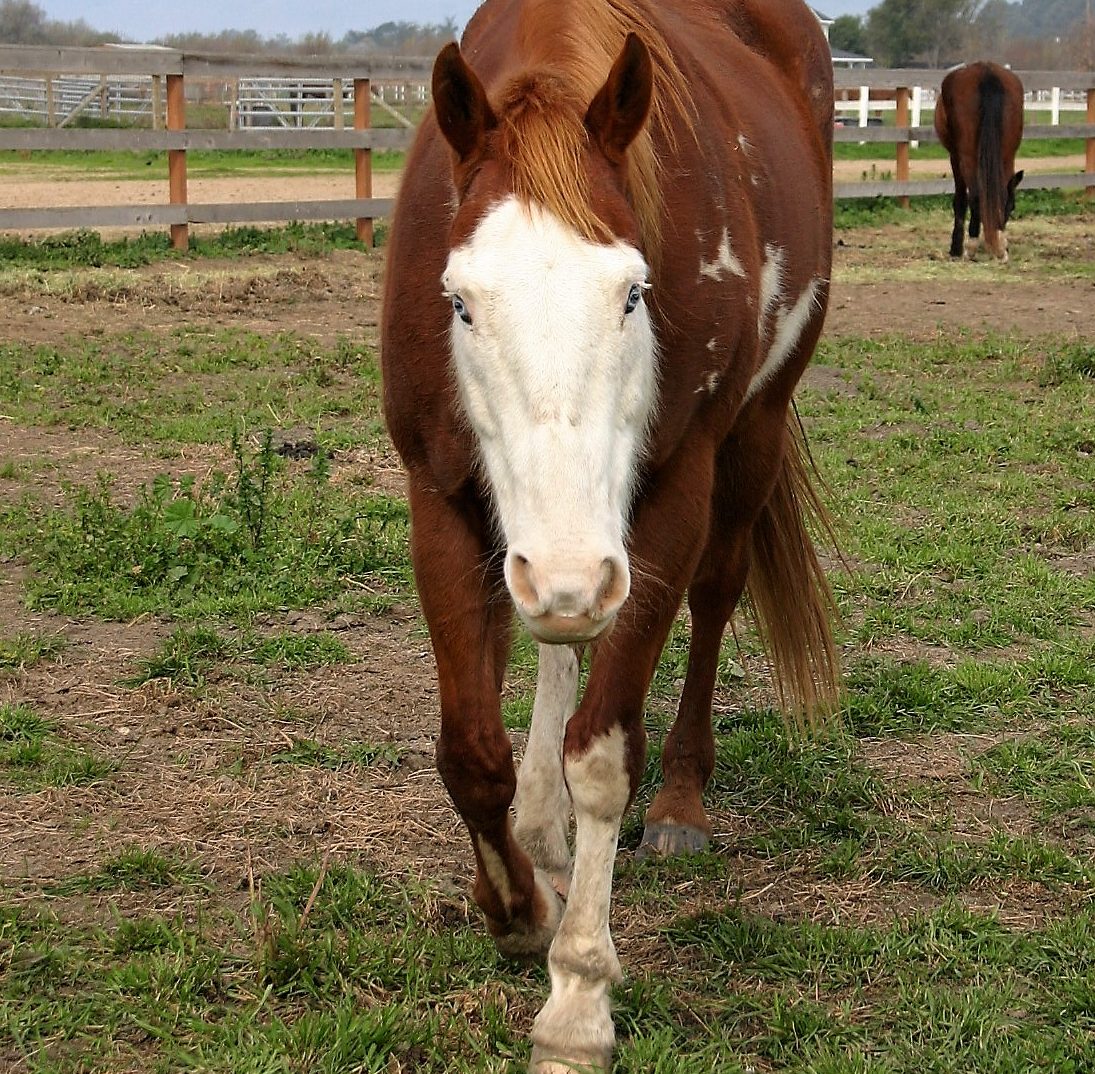Having ridden and competed in more disciplines than I can count on two hands over the years, I have had the opportunity to work with many amazing horse trainers and riding instructors…and a few not so amazing ones. I have been in “full training” and I have gone the road alone at various times, and in doing so, I have acquired a certain amount of wisdom when it comes to finding the right professional to help people achieve their goals. I often get asked the question, by new horse people and those who have been at it for years, “How do I find the right trainer or riding instructor”. While the answer to that question is definitely not cut and dry, there are a few considerations that everyone should have at the top of their list to get them started in the right direction.
Know What You Want
Even the best horse trainer or riding instructor can be made to look completely incompetent if his or her client does not have a clear cut understanding of what they are looking for. Trainers aren’t mind readers; they can’t predict what it is that you want to achieve with your own riding or with your horse unless you can express that to them. If you go to a western trainer and you really want to learn dressage, you’ll end up riding for months and not seeing the results that you want, and it is not fair to blame that on the instruction that you have been receiving. Also, being “wishy-washy” or changing your mind as to what your goals are is only going to frustrate your instructor and waste your time and money. So, before choosing a trainer, have a good idea what it is that you want to accomplish, and make that very clear in the beginning; set some goals and express what you expect. If you aren’t completely sure what you want to end up doing, express that as well, so that your trainer knows that he or she can experiment and expose you to different styles of riding until something clicks.
Don’t Be Afraid to Ask Questions…and Really Listen to the Answers
All too many people end up with a trainer because they have either been referred from someone else, looked up a name in a registry or online, or simply stumbled on to someone that looks as though they know what they are doing. These may be good reasons to “interview”, but that is only the beginning. Personally, when I am looking for a trainer, I ask a lot of questions. I want to know the person’s philosophy on horsemanship, how long they have been in the business, what they specialize in, etc. I don’t like “canned answers” or “trendy buzz words”. It is fine if a trainer mentions something like “natural horsemanship”, but if she cannot express in her own words the methods that she prefers and dislikes, then I steer clear…this is usually a sign of inexperience or of someone who has not been able to take pieces from a lot of different styles to create their own. I also avoid trainers who like to continuously list their accolades; a great show record, certifications, awards, and clients who have gone on to do well are great, but they are not everything. Some of the best trainers that I have worked with have not been in a show ring in their lives, and yet they hold a wealth of knowledge that I have found extremely useful.
Attitude Matters
Different people respond better to different training methods (this goes for horses as well). Some people do well with a trainer who is kind, patient and very soft spoken; personally, I like a trainer who is frank, honest and to the point. I find that I get more out of a lesson when I am called out on the things that I am doing wrong, and I do not take offense to a trainer who is able to “crack the whip” a little bit, so to speak. However, I have a good horse friend who almost quit riding because she took a lesson with one of my favorite trainers, because he was too forceful in his instruction. It is extremely important that you know what works best for you before getting locked in with someone in order to maximize your time and potential.
Don’t Be Afraid to Try it All
In the horse industry, there is too often this unspoken rule that once you’re with a trainer you stay with that trainer and cannot see anyone else for fear of being “disloyal”. In my opinion, if a trainer gets upset because you have taken a lesson or gone to a clinic with another trainer, then that is simply a sign of your trainer’s insecurity. I have a family doctor who I go to see for all of my basic care, but when I broke my leg, I went to an orthopedic specialist; my regular doctor didn’t call me “disloyal” for doing this. The best way to learn is to experience many different methods. If you find a trainer that you like, that’s wonderful, but that doesn’t mean that if you have the opportunity to take a lesson with another trainer you respect that you should be afraid to do so for fear of creating conflict. Ask any potential trainer at the very beginning of your relationship if they have a problem with you occasionally “seeing other people”; if they do, I suggest you walk out the door.
Watch a Lesson
Too many people get themselves into a relationship with a trainer or instructor based solely on either a conversation, a website, or references, but this doesn’t give you the whole picture. Imagine that you are commissioning a piece of art…are you going to begin the process without first seeing what the artist is capable of? Maybe they are a fine artist, but just not your style, or maybe they have completely misrepresented themselves with a slick sales pitch, either way, you can save yourself by seeing a “sample” ahead of time. I like to watch a trainer in action with other clients or horses for a number of reasons, including, but not limited to, witnessing how they react under pressure or frustration, seeing how they deal with a difficult client or animal, experiencing their training techniques first hand, etc. So, whether you catch a sample of a trainer’s work at a horse show or a boarding facility, or you simply ask straight out if you can watch them work, it’s important to take this step before making a decision.
Ask For References
Lastly, don’t be afraid to ask for references when interviewing trainers and riding instructors. Most trainers will be happy to provide you with the names of passed and current clients who have been happy with their work, this is a good place to start. I, however, go a step further and inquire around the horse or show community about the person who I am considering. It’s a good idea to casually ask around the barn where your trainer works (or at local boarding facilities if your trainer is “mobile”) to see what people’s initial reactions of the person are. A good trainer should not be afraid or insulted by your doing a little digging into their professional life.
Here on the Central Coast, I have found that there is no shortage of trainers and riding instructors. I have also found that while there are a lot of responsible, well-known and well-respected professionals in our community, but there are also quite a who don’t get glowing reviews. Remember to do your due diligence when choosing someone to work with you, but especially when choosing someone to work with your horse or your child. Good riding instruction and proper training of a horse by a professional can be that one thing that propels you to the next level in your ability or enjoyment of your horse, so make the decision count!
[contentblock id=4]




